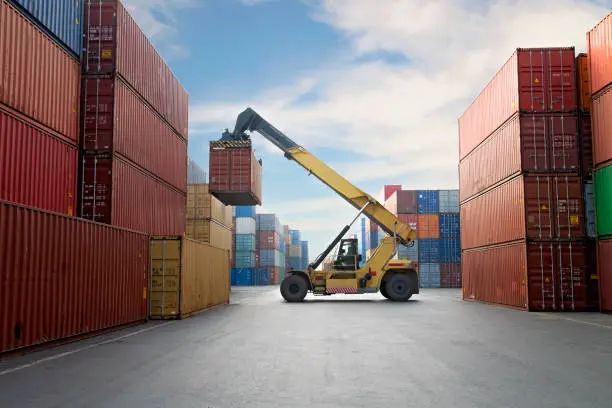
Navigating the Seas of Global Trade: The Importance of Maritime Shipping
- Admin
Maritime shipping stands as the backbone of global trade, facilitating the movement of goods across oceans and continents with unrivaled efficiency and scale. From towering container ships to nimble bulk carriers, maritime vessels connect markets, industries, and consumers worldwide, serving as the lifeblood of the global economy. In this article, we embark on a journey to explore the significance of maritime shipping, its key players, challenges, and its pivotal role in shaping the modern world of commerce.
Significance of Maritime Shipping:
Maritime shipping plays a pivotal role in supporting global trade and commerce by providing cost-effective and reliable transportation solutions for a wide range of commodities. With approximately 90% of global trade carried by sea, maritime shipping serves as the primary mode of transportation for raw materials, manufactured goods, energy resources, and consumer products. From automobiles and electronics to foodstuffs and raw materials, maritime vessels transport goods in vast quantities, connecting producers, suppliers, and consumers across continents and countries.
Key Players in Maritime Shipping:
The maritime shipping industry comprises various key players involved in the transportation of goods by sea:
Shipping Companies: Shipping companies own and operate a fleet of maritime vessels, including container ships, bulk carriers, tankers, and specialized vessels. These companies provide transportation services for shippers and cargo owners, managing vessel operations, crewing, and maintenance to ensure safe and efficient voyages.
Port Authorities: Port authorities oversee port operations and infrastructure, including harbors, terminals, and cargo handling facilities. Port authorities play a critical role in facilitating vessel movements, cargo operations, and port services, ensuring the smooth and efficient flow of maritime trade.
Ship Brokers: Ship brokers act as intermediaries between ship owners and charterers, facilitating the chartering and brokerage of maritime vessels for cargo transportation. Ship brokers negotiate charter contracts, arrange vessel charters, and provide market intelligence and advisory services to clients in the maritime industry.
Freight Forwarders: Freight forwarders specialize in arranging the transportation of goods by sea, coordinating logistics, documentation, and customs clearance for importers and exporters. Freight forwarders work closely with shipping companies, port authorities, and other stakeholders to ensure the timely and cost-effective delivery of cargo by sea.
Challenges in Maritime Shipping:
Maritime shipping faces several challenges that impact its operations and efficiency:
Market Volatility: Maritime shipping is susceptible to market volatility, including fluctuations in freight rates, fuel prices, and vessel supply and demand. Economic downturns, geopolitical events, and industry cycles can impact shipping markets, leading to uncertainty and financial risk for shipping companies and cargo owners.
Regulatory Compliance: Maritime shipping is subject to a complex regulatory framework governing safety, environmental protection, and security. Compliance with international conventions, port state regulations, and flag state requirements requires shipping companies to implement robust safety management systems and environmental controls to ensure regulatory compliance.
Environmental Impact: Maritime shipping contributes to environmental pollution and carbon emissions, primarily through fuel consumption and exhaust emissions from vessels. Efforts to reduce emissions and mitigate environmental impact, such as adopting cleaner fuels, improving vessel efficiency, and implementing emission control measures, are underway within the maritime industry.
Piracy and Security Risks: Maritime shipping is vulnerable to piracy, armed robbery, and maritime security threats in certain regions of the world. Shipping companies implement security measures, such as onboard security teams, vessel tracking systems, and route risk assessments, to mitigate security risks and ensure the safety of crew and cargo.
Conclusion:
Maritime shipping plays a vital role in supporting global trade, connecting markets, industries, and consumers worldwide. Despite facing challenges such as market volatility, regulatory compliance, environmental impact, and security risks, maritime shipping continues to be the preferred mode of transportation for international trade, providing cost-effective, reliable, and efficient transportation solutions for goods transported by sea. As the world continues to evolve and global trade expands, maritime shipping will remain an indispensable pillar of the global economy, driving prosperity and growth for nations and communities around the world.
